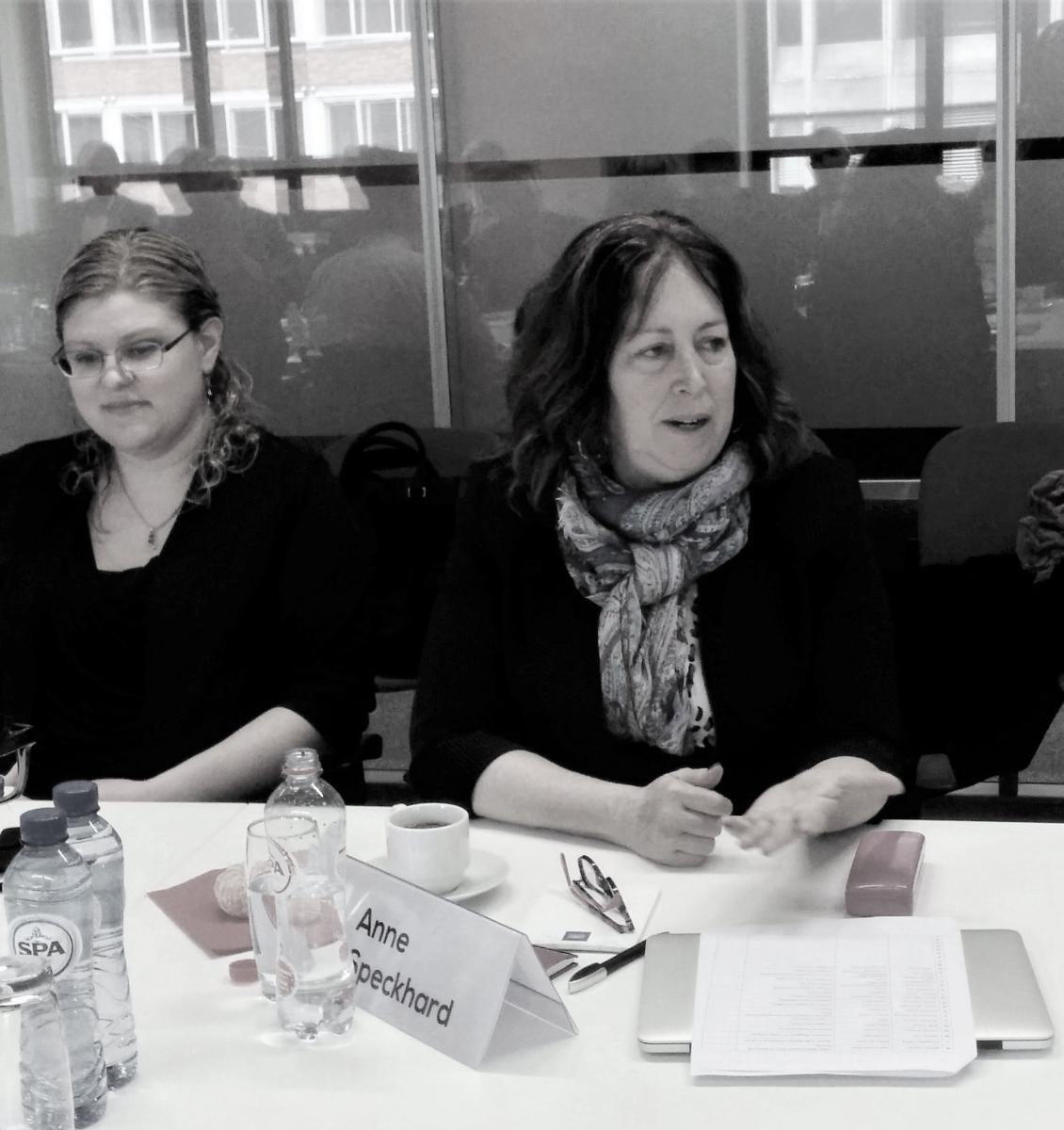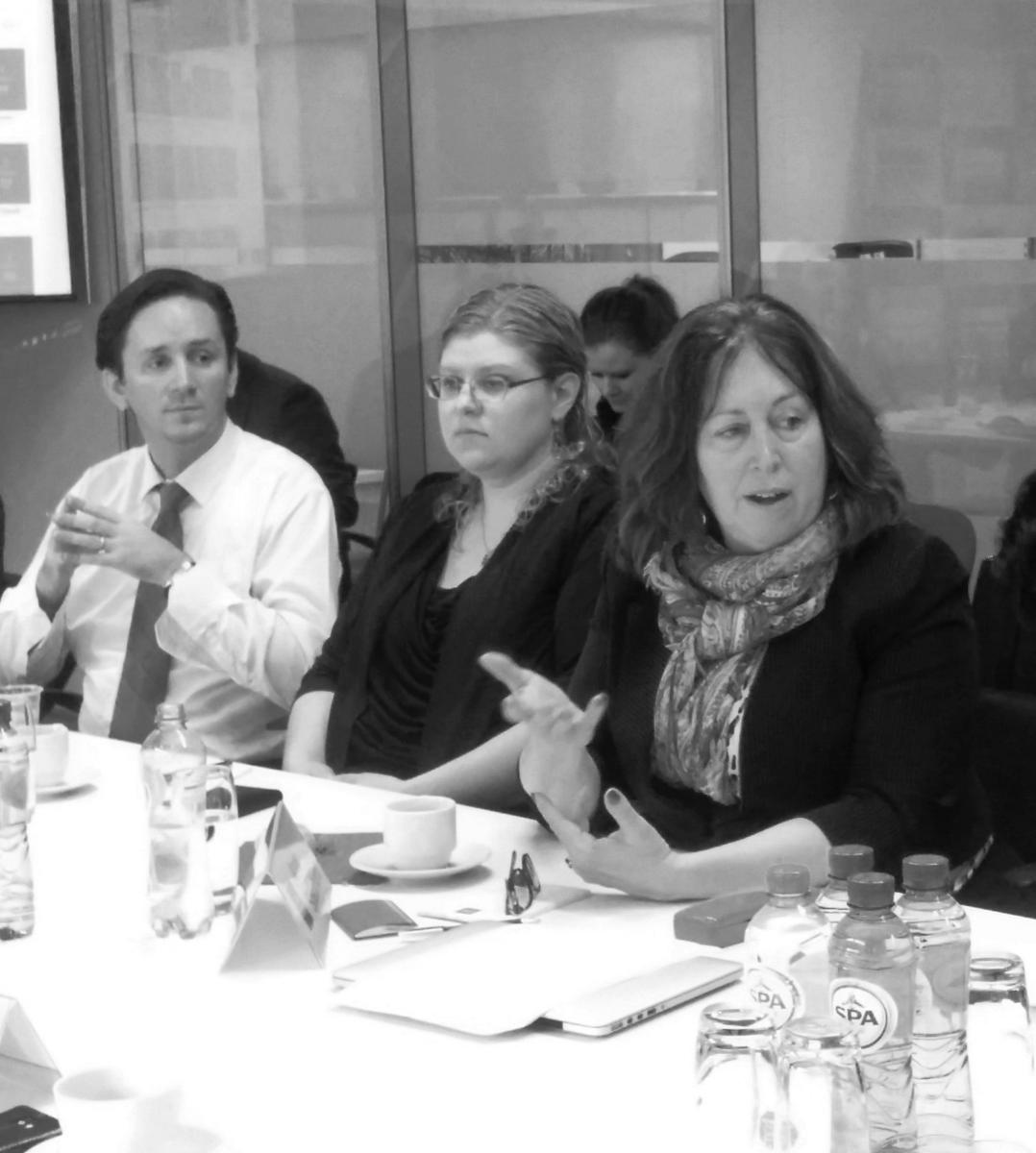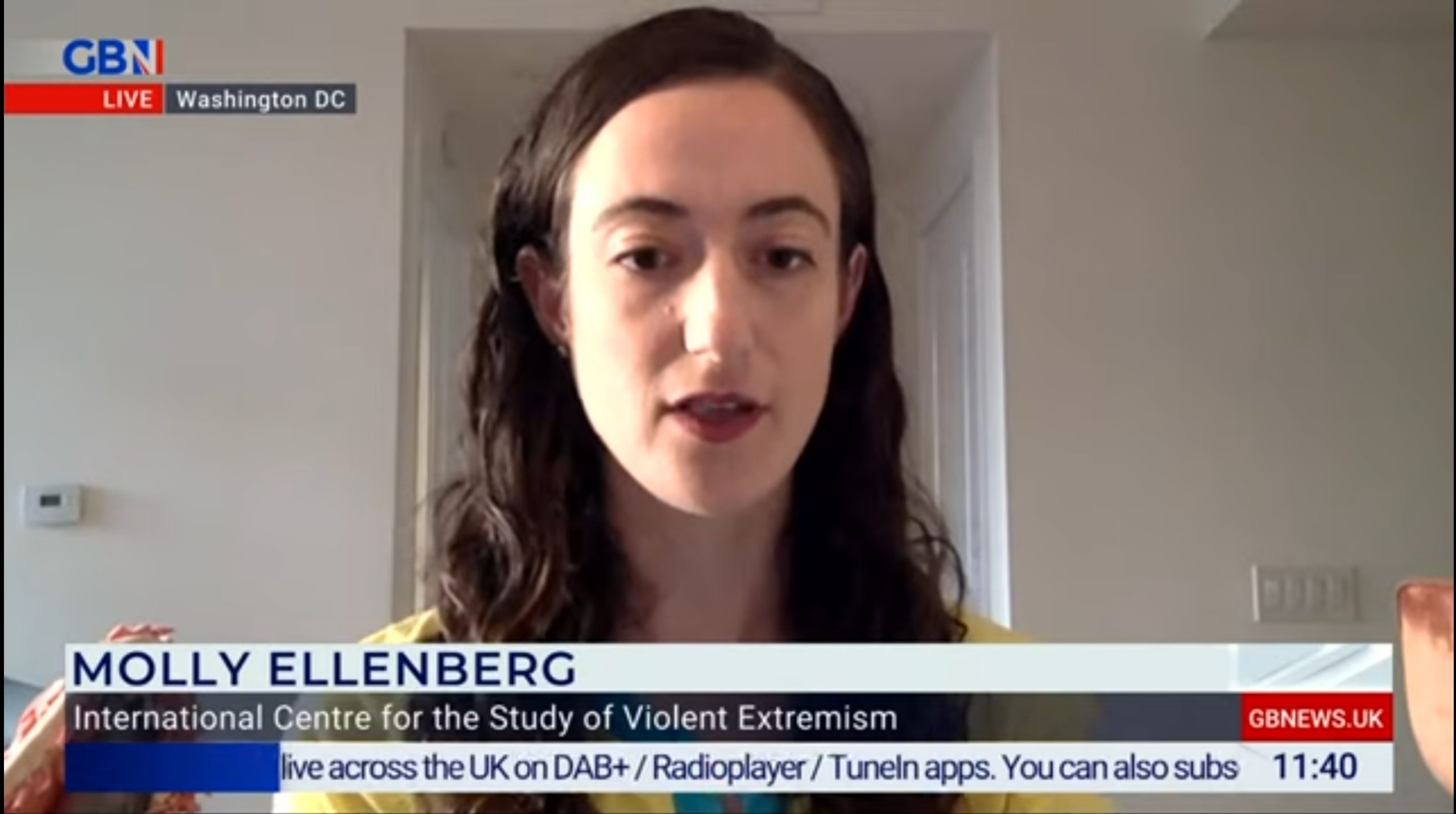
How to Break the ISIS Brand
Anne Speckhard, Allison McDowell Smith and Ardian Shajkovci published at East West Institute
The EastWest Institute’s Brussels Center organized a roundtable with Dr. Anne Speckhard, Adjunct Associate Professor of Psychiatry, at Georgetown University and Director of the International Center for the Study of Violent Extremism (ICSVE) on March 15. Speckhard shared insights into her newest research on how to discredit ISIS from the inside and break the “ISIS brand” by creating and flooding the internet with powerful counter-narratives to their claims of creating a utopian “Caliphate” and Internet seduction of vulnerable sectors of society.
The roundtable was attended by representatives of think tanks, NGOs, NATO and EU institutions, diplomatic delegations to the EU, as well as Belgian police representatives.
Since establishing the “caliphate” in 2014, ISIS has unleashed an unprecedented social-media recruiting drive that has attracted more than 30,000 foreign fighters from over 100 countries. The terrorist group has mastered the art of video-based propaganda and online recruitment—attracting the curious and then “swarming” those who engage or endorse their online products. As ISIS continues to stretch its reach through recruitment beyond borders, discrediting the group’s ideology is essential and may be the most influential tool for preventing and dissuading others from joining ISIS.
To that end, over the past one and a half years Dr. Anne Speckhard and her colleagues at ICSVE have conducted more than 40 interviews with ISIS defectors from Syria, Western Europe, Central Asia and the Balkans, as well as 12 European parents of those who went to ISIS and shared personal horror stories of ISIS brutality and hypocrisy, most captured on video. ICSVE is taking the raw interview material and editing them down into short video clips that mimic ISIS propaganda, naming them with pro-ISIS titles and opening screens that look like ISIS, to load on the internet to fight the group’s online recruiting. The clips have been successfully focus-tested in Central Asia, the Balkans, Western Europe and the U.S., as well as in interventions on Facebook with ISIS endorsers and in ISIS Telegram chat rooms.
Just like other brands, ISIS provides a lifestyle to its believers. In the words of Dr. Speckhard, “if you buy a Coca Cola, you buy a lifestyle.” But ISIS is more than a brand. In a world where grand narratives have collapsed, ISIS presents itself and is seen by its true and die-hard believers as an alternative governance.
Is it possible to break the ISIS brand? This is a daunting task but not impossible. Local and international stakeholders that work on de-radicalization should, among other things, focus on the identity, social, political, and economic needs of vulnerable communities. Setting up helplines for vulnerable families can be very effective. In fact, this method has been applied with success in Germany. Western countries with vulnerable Muslim communities need to initiate overdue open, peaceful, and transparent debates on the thorny topic of identity. Furthermore, successful role models from migrant backgrounds can and should play transformative roles in providing an alternative lifestyle for the ISIS brand.





